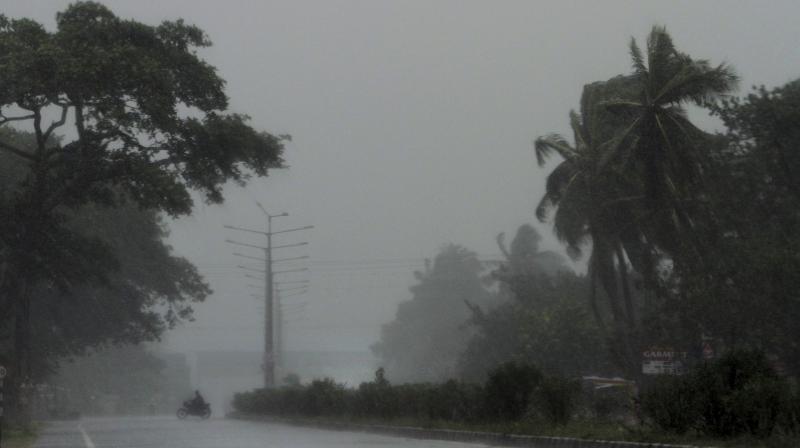Why and how are cyclones named, who decides?
The name of the Cyclone ‘Fani’ (pronounced as Foni) was suggested by Bangladesh. It means ‘snake’ or ‘hood of a snake’

Mumbai: The name of the Cyclone ‘Fani’ (pronounced as Foni) was suggested by Bangladesh. It means ‘snake’ or ‘hood of a snake’
For cyclones in the Bay of Bengal and the Arabian Sea, the naming system was agreed by eight member countries of a group called WMO/ESCAP which came into effect in 2004.
The World Meteorological Organisation (WMO) has devised a mechanism where countries submit a list of names from time to time and names of cyclones are chosen from that pool.
India, Sri Lanka, Bangladesh, Maldives, Myanmar, Oman, Pakistan and Thailand send names of tropical cyclones developing in the North Indian Ocean to the regional committee.
Presently, each country has suggested eight names for cyclones occurring in future. The name ‘Fani’ was decided from a list containing 64 names.
These countries submitted eight names each, which are arranged in an 8×8 table. Cyclones are named sequentially, column-wise, with each cyclone given the name immediately below that of the previous one. Once the bottom of the column is reached, the sequence moves to the top of the next column.
 Photo: World Meteorological Organisation
Photo: World Meteorological Organisation
Cyclone Titli was named by Pakistan, which hit Andhra Pradesh and parts of Odisha last year.
In 2017, Cyclone Ockhi which damaged Kerala and parts of Tamil Nadu was named by Bangladesh.
The names given by India are Agni, Akash, Bijli, Jal, Lehar, Megh, Sagar and Vayu.
While selecting names for cyclones, the nation needs to understand that name is easily understood by the people.
“An important reason why cyclones are named is to help authorities quickly identify storms and keep a track of them because it is easier to remember cyclones by their names than remembering them using technical information like longitude and latitude,” WMO said.
It also added that experience shows that the use of short, distinctive names in written as well as spoken communication is quicker and less subject to error. Naming cyclones also help media in reporting warning related to the approaching cyclone.
After the 64 names are exhausted, the eight countries will propose fresh lists of names.

